|
SUMMER REVIVAL
Sunday, July 1, 2012
Guest Writer for This Unit: Christopher B. Davis is Senior Pastor, St. Paul Baptist Church, Memphis, TN, and Assistant Professor of Preaching and Pastoral Leadership, Memphis Theological Seminary, Memphis, TN.
The unit you are viewing, Summer Revival, is a compact unit. This means that it does not have a supporting cultural resource unit and worship unit. Instead, to enliven the imagination of preachers and teachers, we have provided scriptural text(s) that we suggest for this moment on the calendar along with a sermonic outline, suggested links, books, articles, songs, and videos. For additional information on Revival, see the archives of the Lectionary for 2008–2011. 2011 was the first year that the African American Lectionary posted compact units for moments on its liturgical calendar.
I. Description of the Liturgical Moment
In a PBS documentary entitled God in America, Marilyn Mellowes takes both a historical and contemporary look at the black church. She points out that the status and role of the black church in the post-civil rights era has been the subject of lively debate among African American scholars. Some argue that the black church is “dead,” that it has lost its prophetic and progressive voice and its capacity to mobilize for reform on the national stage. Others argue the church is very much alive.
Regardless of which argument most closely aligns with your personal views, what is obvious is that the church, like all social organizations, is changing. It is also clear that the debate about what the church is, versus what it ought to be, is central to the debate. Thus, Mellowes raises the questions: Should the black church carry forward the prophetic imperative of the Civil Rights Movement—the collective mandate for social change? Or should it focus on personal prosperity and individual economic advancement? While these are valid questions with which we should wrestle, for me the real question is what must happen for the black church to become more effective and more relevant as its serves its primary constituency and the world?
I want to suggest that the short answer to this matter is that the black church must experience spiritual renewal/revival whatever its future role(s). Revival here is not to be understood as guest choirs and popular evangelists preaching for three or more nights in churches. Instead, by revival I mean that the black church must give serious consideration to those things we have been taught and that have served as the foundation of our faith, as we build a sound future. As I heard a preacher say and I paraphrase: “This type of revival unites vigorous gospel proclamation with concern for the needs of the neighborhood and the city, disciples people to integrate their faith and their secular vocation, and evokes in them a high regard for their history, justice, and education.” Lord, send a revival.
As Sherman Cox, II points out in his August 15, 2010 lection, revival “forces us to question whether a good ‘shout’ is the only [intended] outcome of our revival experience. It forces us to rethink what we will do with revival.”
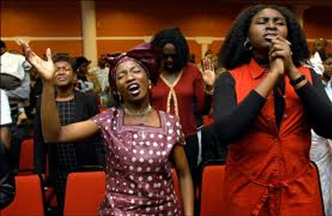
II. Summer Revival: Sermonic Outline
A. Sermonic Focus Text(s): Colossians 1:9-12 (New Revised Standard Version)
(v. 9) For this reason, since the day we heard it, we have not ceased praying for you and asking that you may be filled with the knowledge of God’s will in all spiritual wisdom and understanding, (v. 10) so that you may lead lives worthy of the Lord, fully pleasing to him, as you bear fruit in every good work and as you grow in the knowledge of God. (v. 11) May you be made strong with all the strength that comes from his glorious power, and may you be prepared to endure everything with patience, while joyfully (v. 12) giving thanks to the Father, who has enabled you to share in the inheritance of the saints in the light.
B. Possible Titles
i. Growing by Knowing
ii. The Secret Is Out
iii. You Don’t Know What I Know
C. Points of Exegetical Inquiry
“. . . be filled with the knowledge . . .”
In any text there can be several words or phrases that require significant exegetical inquiry. One exegetical inquiry raised by this text is the issue of how one may best fulfill his or her responsibilities to God in the Christian context. A point of exegetical inquiry is provided in this text by the phrase “be filled with knowledge.” The term Gnostic has its root in the word “knowledge.” The teachings of the Gnostic led persons to believe that aligning with them would give them mystical enlightenment that would set them apart from others. Secret societies have long offered this idea of obtaining knowledge to which others are not privy as a means of recruitment. However, God has not withheld the mystery from us; instead God holds the mystery for us. Once something is discovered, it ceases to be a mystery. Thus, the believer who “knows” Christ can honestly say that they “know” something that non-believers do not know. The aim of every believer must be to know Christ in his fullness as the Holy Spirit gives revelation to each believer.
III. Introduction
As this text opens, we once again find the Apostle Paul in a less-than-desirable situation. But in true and consistent Pauline fashion, he manages to look beyond his personal dire circumstances and seize the opportunity to offer both help and hope to the Church. Paul, here, is imprisoned in Rome, but apparently at some point he had been visited by Epaphras, the pastor of the great Colossian church. Biblical historians suggest that isms had invaded the church: dualism and Gnosticism. Essentially those who were proponents of dualism and Gnosticism believed that the material world conflicted with the spiritual world. The Gnostics believed that while the material world was evil, the spiritual world was good. They argued that since God is good, then God was not involved in the material world. Thus, the question became, If God did not create the material world, who did? But beyond that, the Gnostics taught that Jesus had eminence, but not preeminence. They believed that he was an angel who was separated from God and it was he (Jesus) who created this evil material world.
Epaphras felt a need for some counsel and advice on how to handle the false teachings that had seeped into the church. This might be an appropriate time to point out that the clear lesson in this is that none in the Church, pulpit and pew, are immune from needing help sometimes. Paul, God’s chosen apostle to the Gentiles, was the natural person to which to turn for advice. Recognizing the need to encourage the Colossian Church, Paul writes to them with some very pointed words: get rid of the false teachings and continue on with Christ.
Now, you must keep in mind that Paul had never visited the Colossian church. The believers had never seen him face to face, and because of his present imprisonment, he would be unable to visit them soon. However, Paul’s personal predicament did not negate the fact that the Church, the people, needed him. The very work and witness of the Church was being threatened. What do you do when personal circumstances prevent you from doing what you need to do and what you recognize has to be done? Paul did the only thing he could do: he shared the Word of God with them via letter and he prayed for them.
And it is in this letter that we find clues to how the black church can be revived to serve this present age in ways that will please God and bless our people.
IV. Moves/Points
Move/Point One – We need knowledge of God’s will.
a. The Colossians needed knowledge of what the Lord willed before they became guilty of idolatry;
b. If our churches are to be revived, we need knowledge of God’s will; and
c. Revival of the black church must not be driven by culture.
Move/Point Two – We need knowledge to walk worthy of the Lord, pleasing him.
a. Believers are not better than others, just better off;
b. The black church shows that it is walking worthy by its deeds/fruit; and
c. What are the deeds/fruit of a revived twenty-first century black church?
Move/Point Three – Knowledge of our work will give us power and endurance.
a. The black church needs to show that it is powerful because of its God;
b. As we take stands against big issues, it will require patience to overcome; and
c. As the black church goes through revival and ensures that it is relevant, we will maintain our joy.
V. Celebration
I still believe in the black church! Birthed out of necessity and blood, it grew and prospered. From slavery to Jim Crow, it did not yield to enemies without and enemies within. Most of our great-grandmothers and great-grandfathers were illiterate, but they had God and holy wisdom, and because of that they dreamed and marched and fought and overcame so many demons and unjust laws. Now it is our turn. We are still here—perhaps unfocused some days, perhaps not united some days, perhaps weak some days. But I still believe in God too. So, as the naysayers and the critics shower the landscape with their opinions, I’m going to keep working to bare good fruit—the fruit of justice, the fruit of financial equality, the fruit of peace. There are black children who needs us. The unjustly accused and killed need us. The least of these need us. Are you with me? Are you with me? The critics will not have the last word? Are you with me? Lord, send a revival, and let it begin with me!
VI. Illustration
Like most people, if I’m on the phone, in all likelihood, it’s my cell phone. On one particular occasion, I was preparing to leave home when someone called me on the house phone. Just like my cell phone, it, too, is cordless. Well, I continued to talk with this person on my house phone, all the while thinking I was on my cell phone. As the conversation continued, I made my way to the garage, got inside my car, and backed out. Initially, nothing really changed. However, within seconds, the call was interrupted by static and it wasn’t long before there was total silence. I could no longer participate in and enjoy the conversation I was previously enjoying.
Well, I did what most people would do; I pulled the phone away from my ear to see how many bars I had. It was at that point I recognized that I was on my house phone and not my cell phone. I immediately turned around and headed back home for the purpose of taking the phone back in the house and placing it on the base. To my surprise, when I returned to my garage, and got within closer range to the base, the person on the other end was still talking. I had simply moved too far from the base to hear what was going on.
So, it is with God. Knowledge from God has not ended; the conversation has not ceased. We’ve simply moved too far from the base to hear. If we would turn around and move closer to the base, we could once again hear and participate in the conversation and receive God’s will for us now.
—Christopher Davis
VII. Sounds, Sights, and Colors in This Passage
Some of the sights, sounds, and colors include:
| Sounds: |
Speeches by those who sought to divide the church at Colossae, Paul praying for the Colossian church; black believers praying in faith communities around the country; the sounds of congregations marching for just laws; the sounds of political leaders uniting to solve major issues in the black community; the cries of people in the Black faith community who need help;
|
| Sights: |
People in the Colossian church looking confused and divided; people being provided twenty-first century aid by the black church; and
|
| Colors: |
The color of the attire worn by Paul, by those in the Colossian Church, and by the poor today. |
VIII. Songs to Accompany This Sermon
A. Well-known Song(s)
- We Must Praise. By James Moss
- My Life Belongs to You. By Derek Thomas
- All That I Have. By Andraé Crouch
B. Modern Song(s) (Written between 2005–2011)
- The Blessings of Abraham. By Donald Lawrence
- Heavenly Father. By Deitrick Haddon and Tim Kelley Robinson
- Spiritual Makeover. By Kurt Carr
C. Spiritual(s)
- Revive Us Again. By William P. McKay. Tune by John J. Husband
- I Give All to You. By Larnelle Harris. Arr. by William S. Moon
- We Won’t Leave Here Like We Came. By Maceo Woods. Arr. by Nolan Williams, Jr.
- Come, Be Baptized. By G. Alan Smith
D. Liturgical Dance Music
- We’ve Come to Praise the Lord. By Clark Joseph
- My Everything (Praise Waiteth). By Richard Smallwood
E. Song(s) for the Period of Prayer
- Peace of God. By Carnell Murrell
- Just for Me. By Donnie McClurkin
- Be Strong in the Lord. By Tom Fettke. For SATB
F. Sermonic Selection(s)
- All I Need. By Brian Courtney Wilson
- Endow Me. By Twinkie Clarke
- How Can You Recognize a Child of God? By Margaret Pleasant Douroux
- O, For a Faith. Setting by Nathan Carter. For SATB, contralto, or bass solo
G. Invitational Song or Instrumental
- I Feel a Revival Breaking Out in Me. By Jarion Hamm
- Send Me, I’ll Go. By Harvey Watkins, Jr.
- It Pays to Serve Jesus. Setting by Nathan Carter. For SATB, tenor solo
H. Benediction Song or Instrumental
- Praise God from Whom All Blessings Flow. By Isaac Watts. Arr. by Roberta Martin
- Anointing. By J. Moss
- To the Work. By Fanny Crosby
IX. Videos, Audio, and/or Interactive Media for Revival
X. Articles and Books to Assist in Preparing Sermons, Bible Studies, and/or Worship Services Related to Revival
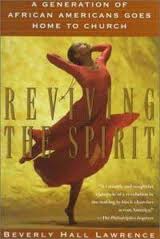 |
Hall Lawrence, Beverly. Reviving the Spirit: A Generation of African Americans Goes Home to Church. New York, NY: Grove Press, 1997.
|
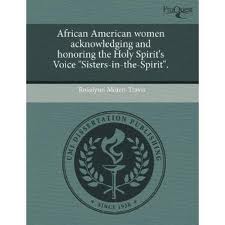 |
Moten-Travis, Rosalynn. African American Women acknowledging and honoring the Holy Spirit’s Voice “Sisters-in-the Spirit.” Ann Arbor, MI: ProQuest, 2011. |
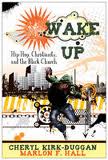 |
Kirk-Duggan, Cheryl, and Marlon F. Hall. Wake Up: Hip Hop Christianity and The Black Church. Nashville, TN: Abingdon Press, 2010. |
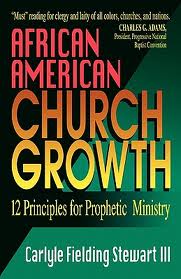 |
Stewart, Carlyle Fielding III. African American Church Growth: 12 Principles for Prophetic Ministry. Nashville, TN: Abingdon Press, 1994. |
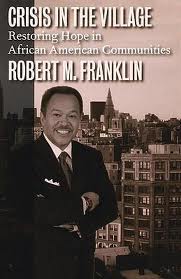 |
Franklin, Robert M. Crisis in the Village: Restoring Hope in African American Communities. Minneapolis, MN: Fortress Press, 2006. |
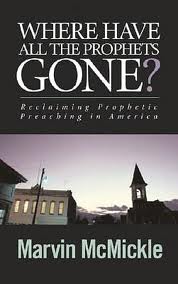 |
McMickle, Marvin. Where Have All the Prophets Gone? Reclaiming Prophetic Preaching in America. Cleveland, OH: The Pilgrim Press, 2006. |
XI. Helpful Tips and Links for Planning a Summer Revival
Before your Revival:
1. Develop church leadership support
2. Develop general laity support
3. Prioritize deacon support/involvement
4. Set calendar dates
5. Confirm speaker(s)
6. Develop music focus
7. Choose a theme song that will be sung at each service
8. Choose additional music that reminds us of renewal, recommitment, and God’s ever willingness to forgive and restore
9. Prepare a six-to-eight-week prayer emphasis to precede the Sunday prior to the first service. The prayer emphasis will focus upon personal spiritual cleansing and holiness and igniting the congregation to help bring in the unsaved and the hurting.
10. Plan, schedule, and implement pre-revival outreach fellowship events both church-wide and through individual Sunday School and other classes.
11. Six to eight weeks prior to the revival service, have people answer in two minutes what they are praying to see happen in our congregation during the revival.
12. Have a team of counselors trained to assist the pastor at the time of decision at the end of each service.
During the Revival:
- Prayer teams in action every day
- Each evening a pre-service prayer focus
- Mass membership communication
- Worship testimonies in each service emphasizing the long-term effects being sought through prayer
After the Revival is completed:
- In the Sundays following, worship service testimonies of answered prayer
- Follow up is made on all decisions made during the services
- Appropriate discipleship classes begun
- New ministries structured and begun involving new leadership discovered during the revival services
A collection of children’s praise and worship songs. Online location:
http://www.kidspraise.info/ accessed 28 December 2011
XII. Notes for Select Songs
A. Well-known Song(s)
- We Must Praise. By James Moss
Location:
J. Moss Project. Inglewood, CA: Gospocentric, 2004.
- My Life Belongs to You. By Derek Thomas
Location:
Houghton, Israel and New Breed. New Season. New York, NY: Sony, 2001.
- All That I Have. By Andraé Crouch
Location:
Crouch, Andraé & The Disciples. This Is Another Day. Nashville, TN: Compendia, 1995.
B. Modern Song(s) (Written between 2005–2011)
- The Blessings of Abraham. By Donald Lawrence
Location:
Lawrence, Donald and The Tri-City Singers. The Grand Finale. Brentwood, TN:
EMI Gospel, 2007.
- Heavenly Father. By Deitrick Haddon and Tim Kelley Robinson
Location:
Haddon, Deitrick. 7 Days. New York, NY: Verity, 2006.
- Spiritual Makeover. By Kurt Carr
Location:
Carr, Kurt & The Kurt Carr Singers. Just the Beginning. Inglewood, CA:
Gospocentric, 2008.
C. Spiritual(s)
- Revive Us Again. By William P. McKay. Tune by John J. Husband
Location:
African American Heritage Hymnal. Chicago, IL: GIA Publications, 2001. #569
- I Give All to You. By Larnelle Harris. Arr. by William S. Moon
Location:
Zion Still Sings for Every Generation. Nashville, TN: Abingdon Press, 2007. #101
- We Won’t Leave Here Like We Came. By Maceo Woods. Arr. by Nolan Williams, Jr.
Location:
African American Heritage Hymnal. #407
- Come, Be Baptized. By G. Alan Smith
Location:
Zion Still Sings. #188
D. Liturgical Dance Music
- We’ve Come to Praise the Lord. By Clark Joseph
Location:
GMWA Men of Promise. Since He Got Up, I Can Go Up. Indianapolis, IN:
Tyscot Records, 2001.
- My Everything (Praise Waiteth). By Richard Smallwood
Location:
Praise & Worship Songs of Richard Smallwood with Vision. New York, NY:
Verity, 2003.
E. Song(s) for the Period of Prayer
- Peace of God. By Carnell Murrell
Location:
Ramsey, Tarralyn. Tarralyn Ramsey. New York, NY: Verity, 2000.
- Just for Me. By Donnie McClurkin
Location:
McClurkin, Donnie. Live in London and More... New York, NY: Verity, 2000.
- Be Strong in the Lord. By Tom Fettke. For SATB
Location:
Be Strong in the Lord: Worship Medleys Arranged by Tom Fettke. Nashville, TN:
Word Music, 2006.
F. Sermonic Selection(s)
- All I Need. By Brian Courtney Wilson
Location:
Just Love. New York, NY: Music World, 2008.
- Endow Me. By Twinkie Clarke
Location:
Coko. Grateful. Brentwood, TN: EMI Gospel, 2008.
- How Can You Recognize a Child of God? By Margaret Pleasant Douroux
Location:
African American Heritage Hymnal. #266
- O, For a Faith. Setting by Nathan Carter. For SATB, contralto, or bass solo
Location:
GIA Publications, Inc.
7404 S. Mason Avenue
Chicago, IL 60638
Phone: 1-800-GIA-1358
Online location: www.giamusic.com
G. Invitational Song or Instrumental
- I Feel a Revival Breaking Out in Me. By Jarion Hamm
Location:
Leonard, Dennis & the Heritage Christian Center Mass Choir. Everybody Ought to Know. Denver, CO: Hamm Music, 1991.
- Send Me, I’ll Go. By Harvey Watkins, Jr.
Location:
The Canton Spirituals. Live in Memphis Vol. II. Memphis, TN: Blackberry Records, 1995.
- It Pays to Serve Jesus. Setting by Nathan Carter. For SATB, tenor solo
Location:
GIA Publications, Inc.
Phone: 1-800-GIA-1358
Online location: www.giamusic.com
Online audio sample available. http://www.giamusic.com/mp3s/630_15.mp3
Online Music sample available. www.giamusic.com/searchPDFS/G5875.pdf
H. Benediction Song or Instrumental
|

